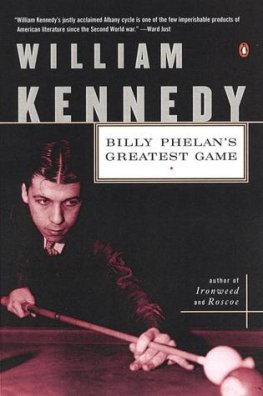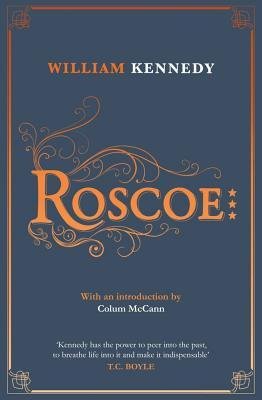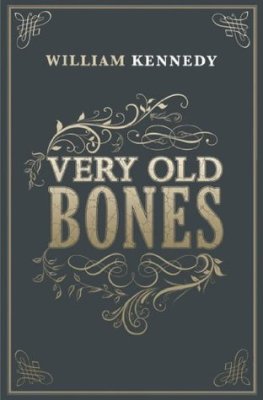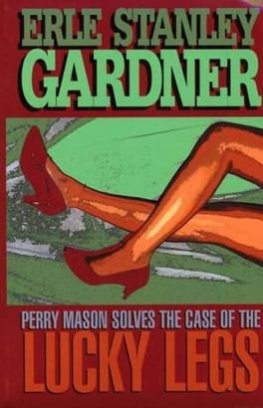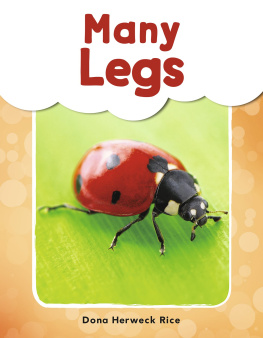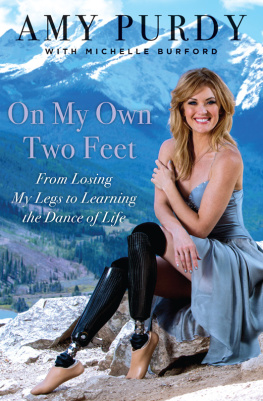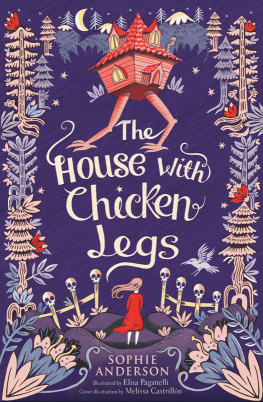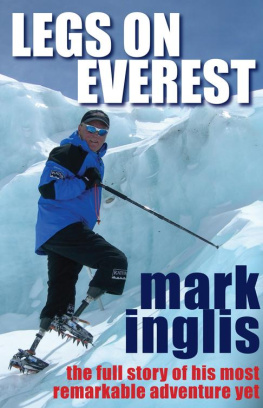William Kennedy - Legs
Here you can read online William Kennedy - Legs full text of the book (entire story) in english for free. Download pdf and epub, get meaning, cover and reviews about this ebook. genre: Prose. Description of the work, (preface) as well as reviews are available. Best literature library LitArk.com created for fans of good reading and offers a wide selection of genres:
Romance novel
Science fiction
Adventure
Detective
Science
History
Home and family
Prose
Art
Politics
Computer
Non-fiction
Religion
Business
Children
Humor
Choose a favorite category and find really read worthwhile books. Enjoy immersion in the world of imagination, feel the emotions of the characters or learn something new for yourself, make an fascinating discovery.

- Book:Legs
- Author:
- Genre:
- Rating:3 / 5
- Favourites:Add to favourites
- Your mark:
- 60
- 1
- 2
- 3
- 4
- 5
Legs: summary, description and annotation
We offer to read an annotation, description, summary or preface (depends on what the author of the book "Legs" wrote himself). If you haven't found the necessary information about the book — write in the comments, we will try to find it.
Legs — read online for free the complete book (whole text) full work
Below is the text of the book, divided by pages. System saving the place of the last page read, allows you to conveniently read the book "Legs" online for free, without having to search again every time where you left off. Put a bookmark, and you can go to the page where you finished reading at any time.
Font size:
Interval:
Bookmark:

William Kennedy
Legs
The first book in the Albany Cycle series, 1975
This is for Pete McDonald, a first-rate relative
and for all the archtypes lurking in
Ruth Tarson's lake house
People like killers,. And if one feels sympathy
for the victims it's by way of thanking them
for letting themselves be killed
Eugene Ionesco
JACK'S ALIVE
"I really don't think he's dead," I said to my three very old friends.
"You what?" said Packy Delaney, dropsical now, and with only four teeth left. Elephantiasis had taken over his legs and now one thigh was the size of two. Ah time.
"He don't mean it," Flossie said, dragging on and then stubbing out another in her chain of smokes, washing the fumes down with muscatel, and never mind trying to list her ailments. ("Roaches in your liver," Flossie's doc had told her. "Go on home and die at your own speed.")
Tipper Kelley eyed me and knew I was serious.
"He means it, all right," said Tipper, still the dap newsman, but in a 1948 double-breasted. "But of course he's full of what they call the old bully-bull-bullshit because I was there. You know I was there, Delaney."
"Don't I know it," said the Pack.
"Me and Bones McDowell," said the Tip. "Bones sat on his chest."
"We know the rest," said Packy.
"It's not respectful to Bones' memory to say he sat on the man's chest of his own accord," Tipper said. "Bones was the finest reporter I ever worked with. No. Bones wouldn't of done that to any man, drunk or sober, him or Jack the corpse, God rest his soul. Both their souls, if Jack had a soul."
"He had a soul all right," said Flossie. "I saw that and everything else he had too."
"We'll hear about that another time," said Tipper, "I'm now talking about Bones, who with myself was the first up the stairs before the cops, and Jack's wife there in the hallway, crying the buckets. The door was open, so Bones pushed it the rest of the way open and in he snuck and no light in the room but what was coming in the window. The cops pulled up then and we heard their car door slam and Bones says to me, 'Come inside and we'll get a look before they kick us the hell out,' and he took a step and tripped, the simple bastard, and sprawled backward over the bed, right on top of poor Jack in his underwear, who of course didn't feel a thing. Bones got blood all over the seat of his pants."
"Tipper," said Packy, "that's a goddamn pack of lies and you know it. You haven't got the truth in you, and neither did Bones McDowell."
"So in comes big Barney Duffy with his flashlight and shines it on Bones sitting on poor Jack's chest. 'Sweet mother of mine,' says Barney and he grabbed Bones by the collar and elbow and lifted him off poor Jack like a dirty sock. 'Haven't cha no manners atall?' Barney says to him. 'I meant no harm,' says Bones. 'It's a nasty thing you've done,' says Barney, 'sittin' on a dead man's chest.' 'On the grave of me mother I tripped and fell,' says Bones. 'Don't be swearing on your mother at a filthy time like this,' says Barney, 'you ought to be ashamed.' 'Oh I am,' says Bones, 'on the grave of me mother I am.' And then Barney threw us both out, and I said to Bones on the way down the stairs, 'I didn't know your mother was in the grave,' and he says to me, 'Well, she's not, the old fart-in-the-bottle, but she oughta be.' "
"You never got a good look at the corpse," Packy said to Tip. "and don't tell me you did. But you know damn well that I did. I saw what they did to him when he was over at Keenan the undertaker's for the autopsy. Thirty-nine bullets. They walked in there while he was sleeping and shot him thirty-nine times. I counted the bullet holes. You know what that means? They had seven pistols between the pair of them. "
"Say what you will." I told them, savoring Packy's senile memory, remembering that autopsy myself, remembering Jack's face intact but the back of his head blown away by not thirty-nine but only three soft-nosed.38-caliber bullets: one through his right jaw, tearing the neck muscle, cutting the spinal cord, and coming out through the neck and falling on the bed; another entering his skull near the right ear and moving upward through his brain, fracturing his skull, and remaining in the fracture; and the third, entering the left temple, taking a straight course across the brain and stopping just above the right ear.
"I still don't think he's dead."
* * *I had come to see Jack as not merely the dude of all gangsters. the most active brain in the New York underworld, but as one of the truly new American Irishmen of his day; Horatio Alger out of Finn McCool and Jesse James, shaping the dream that you could grow up in America and shoot your way to glory and riches. I've said it again and again to my friends who question the ethics of this somewhat unorthodox memoir: "If you liked Carnegie and Custer, you'll love Diamond." He was almost as famous as Lindbergh while his light burned. "The Most Picturesque Racketeer in the Underworld," the New York American called him; "Most Publicized of Public Enemies," said the Post; "Most Shot-At Man in America," said the Mirror.
Does anyone think these superlatives were casually earned? Why he was a pioneer, the founder of the first truly modern gang, the dauphin of the town for years. He filled the tabloids-never easy. He advanced the cause of joyful corruption and vice. He put the drop of the creature on the parched tongues of millions. He filled the pipes that pacify the troubled, loaded the needles that puncture anxiety bubbles. He helped the world kick the gong around, Jack did. And was he thanked for this benevolence? Hardly. The final historical image that endures is that corpse clad in underwear, flat-assed out in bed, broke and alone.
That's what finally caught me, I think: the vision of Jack Diamond alone, rare sight, anomalous event, pungent irony. Consider the slightly deaf sage of Pompeii, his fly open. feet apart. hand at crotch, wetting surreptitiously against the garden wall when the lava hits the house. Why he never even heard the rumbles. Who among the archaeologists could know what glories that man created on earth, what truths he represented, what love and wisdom he propagated before the deluge of lava eternalized him as The Pisser? And so it is with Jack Diamond's last image. It wouldn't matter if he'd sold toilet paper or milk bottles for a living, but he was an original man and he needs an original epitaph, even if it does come four and a half decades late. I say to you, my reader, that here was a singular being in a singular land, a fusion of the individual life flux with the clear and violent light of American reality, with the fundamental Columbian brilliance that illuminates this bloody republic. Jack was a confusion to me. I relished his company, he made me laugh. Yet wasn't I fearful in the presence of this man for whom violence and death were well-oiled tools of the trade? Yes, ah yes. The answer is yes. But fear is a cheap emotion, however full of wisdom. And, emotionally speaking, I've always thought of myself as a man of expensive taste.
I chose the Kenmore to talk to Packy, Tipper, and Flossie because if Jack's ghost walked anywhere, it was in that bar, that old shut-down Rain-Bo room with its peeling paint and its glory unimaginable now beneath all that emptiness. In the 1920's and 1930's the Kenmore was the Number One nightclub between New York and the Canadian border. Even during the Depression you needed a reservation on weekends to dance in evening clothes to the most popular bands in the country: Rudy Vallee and Ben Bernie and Red Nichols and Russ Morgan and Hal Kemp and the Dorsey Brothers and all the rest who came before and after them. Naturally, limelighter that he was, Jack lived there. And so why wouldn't I choose the place to talk to three old friends, savor their memories and ring them in on my story'?
Next pageFont size:
Interval:
Bookmark:
Similar books «Legs»
Look at similar books to Legs. We have selected literature similar in name and meaning in the hope of providing readers with more options to find new, interesting, not yet read works.
Discussion, reviews of the book Legs and just readers' own opinions. Leave your comments, write what you think about the work, its meaning or the main characters. Specify what exactly you liked and what you didn't like, and why you think so.



